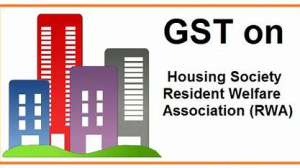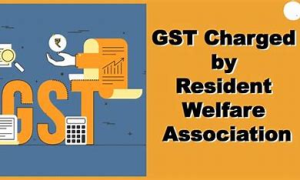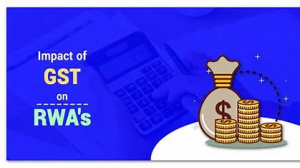Introduction to Resident Welfare Associations (RWAs)
Resident Welfare Associations (RWAs) are organizations that provide maintenance and upkeep for housing societies, apartment complexes, and residential colonies in India. An RWA is essentially an association of residents living in a particular area that come together to take care of the community’s needs.
RWAs play a crucial role in managing the day-to-day affairs of a residential complex or society. Their responsibilities include maintenance of common areas, security arrangements, garbage collection, water supply, holding events and celebrations during festivals, etc. RWAs help create a sense of community living and provide a collective voice to take up issues faced by residents with municipal authorities.
Over the years, RWAs have evolved into quasi-local self-governance units in urban areas. As per a recent estimate, India has over 200,000 RWAs across metros, cities, and towns. The number is steadily growing as new residential projects come up in suburban areas.
RWAs are registered as non-profit organizations under state-level co-operative societies or apartment ownership acts. They have an elected Executive Committee composed of residents that oversees RWA operations. Funds are collected from members in the form of monthly maintenance charges and used for community expenses.
Understanding Goods and Services Tax (GST)
Goods and Services Tax (GST) is an indirect tax regime introduced in India on July 1, 2017. It has subsumed multiple central and state-level indirect taxes such as VAT, CST, service tax, entertainment tax, luxury tax, etc. Under GST, all goods and services are taxed under five different GST slabs:
- 0%
- 5%
- 12%
- 18%
- 28%
Some key features of GST:
- Destination-based tax: GST is applicable where goods or services are consumed and not where they originate from.
- Input tax credit: GST paid on purchases can be set off against GST payable on the supply of goods and services. This avoids tax cascading.
- Four-tier structure: GST has a four-tier structure comprising CGST, SGST, IGST, and UTGST. CGST and SGST apply for intra-state supplies, while IGST applies for inter-state supplies.
- Common compliance portal: registration, tax payments, return filing, etc. are done online via the GST Network portal.
The coverage of GST is very wide, and it has had a significant impact on the taxation of various entities, such as housing societies and RWAs.
Also Read: What Is GST? Overview And Services
Applicability of GST to Resident Welfare Associations

RWAs provide various services, such as security, maintenance of common areas, facilities, etc., to their members. The key question is whether GST is applicable to these services provided by an RWA to its members.
As per the provisions of the GST Law, any supply of goods or services by one person to another in the course or furtherance of business is considered a taxable supply. Services provided by an RWA to its members in return for consideration in the form of maintenance charges are a taxable supply of services.
Some examples of taxable RWA services under GST include:
- Housekeeping and maintenance of common areas
- Security services
- Payment of utility bills (paid out of the maintenance fund)
- Booking of a community hall for events
Thus, an RWA needs to assess if it is required to register and comply with GST.
Differentiating GST Applicability for Various Types of RWAs

The applicability of GST for Resident Welfare Associations (RWAs) varies depending on factors like size, nature of services provided, turnover, etc. RWAs can be broadly classified into the following categories from a GST perspective:
-
Self-maintained small RWAs
Small RWAs that are self-managed by their resident members without employing any exclusive office staff or outsourced workers are exempt from registering under GST.
These are typically RWAs with less than 20–25 members and limited common amenities. The operations and maintenance are handled directly by the residents themselves. They collect modest amounts towards maintenance, which are utilized for the upkeep of basic facilities.
In such exempt RWAs, there is no formal supply of services for consideration; hence, GST registration requirements do not apply to them. Compliances like issuing tax invoices, filing returns, etc. are not required for such self-maintained RWAs. This provides relief from GST complexities for individuals staying in small cooperative housing societies and simple apartments.
-
Large RWAs with turnover above the threshold
The larger RWAs of large apartment complexes and colonies with significant numbers of units have substantial operating expenses. These would include expenses on account of staff salaries, outsourced services like security and housekeeping, maintenance bills, and other administrative costs.
In such cases, the cumulative amount collected annually from residents as maintenance charges can easily cross the prescribed GST threshold of Rs. 20 lakhs per annum. Crossing this turnover limit attracts GST registration and compliance requirements for such large RWAs as per GST law.
Once registered, they are required to pay GST on the taxable value of services provided to members. Taxes have to be paid out of the maintenance amounts collected, and all compliance formalities like invoicing, timely GST return filing, etc. have to be met.
-
RWAs provide services to outsiders.
There are some RWAs that, apart from providing services to their own members, additionally provide certain facilities or services to non-members and external parties.
This could include renting out the community hall or garden for external events, operating parking lots, and leasing out shop spaces within the premises. Some RWAs also sell packaged drinking water to outside parties.
For such supplies made to non-members and outsiders, RWAs have to compulsorily pay GST on the charges recovered. The benefit of the threshold exemption does not apply to the provision of services to non-members.
-
Commercial establishments operating from RWA premises
At times, separate commercial activities and establishments may operate on the premises of a residential complex. This includes shops, convenience stores, restaurants, play areas, etc. that are accessible to the general public.
GST registration and compliance requirements clearly arise for such entities, as they operate just like any other similar commercial establishment. RWAs have to ensure such activities hold valid GST registration and fulfill tax payment and return filing compliances.
Want to understand joint development agreements (JDAs) and GST implications? Then you really need to click on this blog post by Captainbiz.
GST registration for RWAs
RWAs are liable to register for GST if their aggregate turnover exceeds ₹20 lakhs (₹10 lakhs for special category states) in a financial year.
Aggregate turnover includes:
- Taxable value of all goods and services supplied
- Exempt supplies
- Export of goods and services
- Inter-state supplies
Key points regarding GST registration of RWAs:
- Registration is mandatory for crossing the turnover threshold.
- A GSTIN number is allotted post-registration.
- You can register voluntarily even if you are below the threshold.
- Registered RWAs to collect and deposit GST on maintenance charges
- Eligible to claim ITC on purchases for providing taxable supplies
GST registration is done online on the GST Network portal. Prescribed documents and details need to be submitted to obtain registration.
Also Read: How To Do GST Registration Online
Understanding Input Tax Credit (ITC) for RWAs
Input Tax Credit (ITC) is a key feature of GST that eliminates cascading of taxes. ITC allows the recipient of goods or services to claim the GST paid on purchases against the output GST payable on supply.
RWAs can avail of ITC on the following:
- Inward supplies: GST paid on supplies received by RWA from vendors
- Capital goods: GST paid on purchase of equipment, fixtures, appliances etc.
- Input services: GST paid on services like security and housekeeping availed by RWA
To claim ITC, RWAs must ensure:
- Vendors provide proper tax invoices.
- GST is separately charged and paid by RWA.
- ITC is claimed in monthly GST returns.
- Goods and services are used to provide taxable outward supplies.
Proper accounting of invoices and availing of ITC help reduce tax liability for registered RWAs.
| Purchase/Expense | ITC Eligibility |
| Security services | Eligible |
| Maintenance/housekeeping contracts | Eligible |
| Generator purchase | Eligible |
| Audit fees | Eligible |
| Property/water taxes | Not eligible |
| Brokerage for flat purchases | Not eligible |
Also Read: What is Input Tax Credit (ITC)?
Tax Calculations and Returns Filing for RWAs
Calculation of GST
- For exempt RWAs: No GST, hence no special calculations needed.
- For registered RWAs:
- Identify taxable outward supplies as per the GST rate schedule.
- Add applicable CGST and SGST equally to the taxable value.
- Deduct the available ITC from the output CGST and SGST payable amounts.
- Pay the net GST liability in cash.
GST Returns
The key GST returns applicable to registered RWAs are:
- GSTR-1: Furnishes details of outward supplies and taxes.
- GSTR-3B: Monthly tax payment return.
- GSTR-9: Annual GST return filed reconciling ITC claims, expenses, etc.
Non-filing of returns attracts heavy interest and penalties under GST. RWAs must ensure timely filing and payment compliance after registration.
| Return | Period | Due Date |
| GSTR-1 | Monthly | 11th of next month. |
| GSTR-3B | Monthly | 20th of next month. |
| GSTR-9 | Annual (FY) | 31st December |
Impact of GST on RWA Finances and Budgeting

Implementation of GST has significant implications for the finances and budgeting aspects of RWAs.
-
Additional tax burden
With GST, RWAs now have to pay taxes on maintenance charges collected from members to the extent that these were not taxable pre-GST. This increases cash outflows for tax payments.
Unless residents increase maintenance amounts, RWAs have to manage this extra tax burden from their existing corpus by controlling other expenses. This shrinks the available funds for actual operational expenses.
-
Working capital impact
There is a timing difference between a GST payment and an ITC refund that strains the working capital of an RWA. GST payments for a month have to be done by the 20th of next month, whereas ITC refunds happen only when the amount is available in the buyer’s credit ledger.
Any shortfall in ITC claims during the initial months blocks working capital for RWAs, which could have been used for routine expenses. This prevents the idle parking of funds with tax authorities.
-
Compliance costs
RWAs now have to incur additional overheads related to GST compliance. Expenses are incurred on accounting software and tools, invoice generation, record-keeping, outsourcing compliance, tax consulting fees, etc.
For some RWAs, dedicated accounts staff may be needed to manage periodic GST computations, documentation, and return filing. These expenses eat into RWA’s reserves every year.
-
Structured processes
With GST, RWAs now need to follow more structured processes around purchase and expense management. Proper invoices and accounting have to be ensured for ITC. Vendor contracts also need suitable modifications.
Standard operating procedures for financial matters become necessary. RWAs have to ensure proper controls, reviews, and authorization mechanisms for GST compliance.
-
Budgeting
RWAs will now have to modify their annual budgets to accommodate higher tax expenses, the inflationary impact on contracts due to GST, and increased compliance costs.
New line items need to be included in RWA budgets towards registration fees, software expenses, accounting charges, tax consultant fees, etc. Contract values would also be higher. RWAs have to thus reorient their overall budgeting approach in the GST era.
-
A higher standard of financial prudence
With tax liabilities, accounting responsibilities, and compliance overheads, RWAs now have to maintain a higher degree of financial discipline. Record-keeping, utilization of funds, prudently planning expenditures, etc. become more important.
RWAs have to practice greater diligence in financial matters with better compliance with statutory requirements under GST compared to the pre-GST period. This enables RWAs to claim ITC benefits correctly and avoid penalties for non-compliance.
Conclusion
The introduction of GST in India has brought about significant changes in how RWAs need to operate. Activities of RWAs typically constitute the supply of services to their members, attracting GST on maintenance charges.
Small RWAs may be exempt, while large RWAs need to register and undertake monthly compliances if turnover crosses the prescribed threshold. Availing ITC helps reduce the tax burden.
RWAs need to adapt their processes and budgets to manage GST registration, calculation, documentation, returns, and reconciling ITC claims. An adequate understanding and plan are vital for RWAs to remain tax-compliant and avoid penalties for non-compliance.
Also Listen: GSTR 7 Applicability and Registration Requirements
FAQs
-
Is GST applicable if monthly maintenance is less than Rs 7500 per member?
Yes, the Rs 7500 per member per month threshold is only for exemption from registration. If turnover crosses Rs 20 lakhs, RWA needs to register and pay GST, irrespective of the maintenance amount collected.
-
Can an unregistered RWA provide input services to members?
No, only registered taxable persons can provide input services to claim ITC. Exempt RWAs cannot provide input services.
-
Does a registered RWA need to collect GST on penalties or interest charged?
Yes, any amounts collected as interest, penalty, or delayed payment charges from members would also attract GST.
-
What tax invoice details are required for RWA to claim ITC?
A tax invoice issued to RWA must have details of GSTIN, service description, taxable value, GST amount, place of supply, etc. to claim ITC.
-
How is venue renting by RWA for external parties taxed under GST?
When an RWA rents out the community hall or other facilities to external parties, 18% GST (CGST 9% + SGST 9%) applies to the rental charges.
